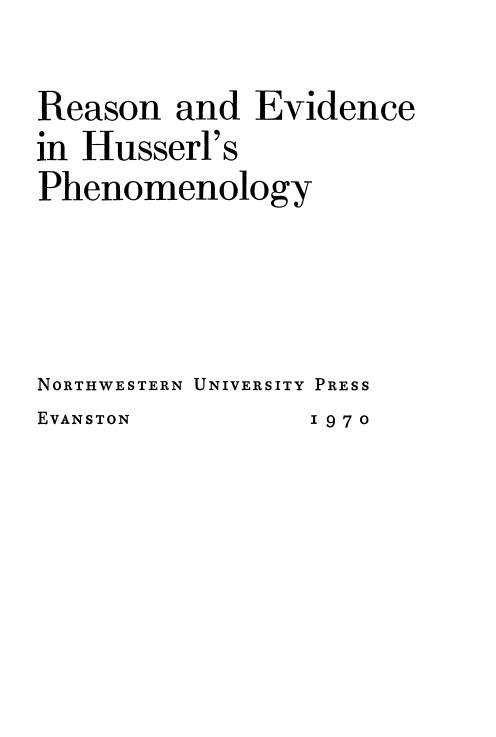In Reason and Evidence in Husserl’s Phenomenology, David Michael Kleinberg-Levin examines Husserl’s concept of necessary, a priori, and absolutely certain indubitable evidence, which he terms apodictic, and his related concept of complete evidence, which he terms adequate. To do so it explicates some of the more general relevant features of phenomenology as a whole.
About the Author
DAVID MICHAEL KLEINBERG-LEVIN earned his Ph.D. in Philosophy from Columbia University in 1967. He taught in the Humanities Department at MIT from 1968 until 1972, and in the Department of Philosophy at Northwestern University from 1972 to 2005. He specializes in Continental philosophy, hermeneutical phenomenology, and questions in aesthetics, clinical psychology, moral philosophy and critical social theory.

